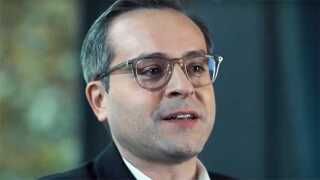It’s been a good year for France-IX. The company has been successful in attracting a number of corporate companies, in addition to CDN’s (content delivery networks) and ISP’s (internet service providers) - a move that CEO Franck Simon says was motivated by recognising that “corporates were part of the future of what IXP’s should be”, adding that the company needed to “differentiate from our competitors and be able to attract different players”.
Over the last year alone, France-IX almost doubled the number of peering partners bringing the total to nineteen and, according to Simon, resellers are key to the company’s plans for growth.
“Today more than 60% of the new networks come to us from outside of France,” explains Simon. “But it’s not to be confused with physically going international to reach customers, we need to have partners who are resellers that are using their infrastructure to collect the new networks and bring them either to Paris or Marseille (where France-IX has physical PoPs”.
But it’s not just about the spatial increase. What’s key for Simon is the diversification of the types of resellers, to ensure the most options for customers. Simon says that they need “to have resellers that are able to differentiate from each other”.
He continues by saying: “When we began there were many resellers addressing Europe, so with the development of Marseille we wanted resellers that are operators and that have the capacity of submarine cables covering Africa, Middle East and Asia - places where we won’t set up physical PoPs.“
A year on from its launch, France-IX’s Marketplace offering has enabled it to expand its eco-system by presenting its peering members the ability to purchase the complementary IP related services in addition to peering services.
“IXP is no longer just a pure technical platform for IT professionals,” explains Simon, “but a type of huge commercial tool for people that are buying the services from operators. They want to be able to buy cloud services from Amazon, Microsoft, Google and so on, they also want to have DDoS protection services because they are more open to the internet and they can have access to it through the Marketplace we have set up,” adding “they gain in terms of costs and flexibility which is also a real added value for them and in doing that we help them in their digital transformation.”
He goes onto say that “this is future for IXP’s, not only for us, I think it will be a strong element for IXP’s to integrate into their global strategy. IXP’s were initially only providing peering services, but the future of ISP’s and especially for France-IX is to be a multi-platform for services, with peering being only one of those services.”
Expansion
So with all these announcements and milestones, what’s the future for France-IX? Well its simple - firstly Simon wants to organically grow their physical footprint in Paris “by adding data centres”, he says. And while doing the same in Marseille he also wants to open “additional PoPs in Marseille because we have received requests from the countries I’ve mentioned (Africa, Middle East and Asia) as a result of the submarine cables landing in Marseille.”
Secondly he wants to extend the number of partnerships France-IX has with internet exchanges in France, but he also wants to add additional partnerships, especially in Africa and French speaking countries in Africa. Simon says: “We have initiated such partnerships with a few African countries like Morocco and Senegal and it’s something we will continue to develop over the next year because the aim is to help the French speaking countries to get access to French content but also to get access locally.“
And lastly In terms of services France-IX will continue to develop its reselling program but it will consolidate the number of resellers, especially those for its Marseille PoPs.
Looking forward, Simon says that the main challenge for the future is “to have API’s or capabilities to automate the provisioning of the resource. Future IXP’s will have to collaborate with each other to have common API’s, common stuff so that when a big player does arrive in the country or region, it will be easier to have a common global interface. And the network can be connected into several IXP’s instead of having to negotiate with each IXP on how they can automate or interconnect.”
Does he think other IXP’s will be open to the idea? “I’m not sure,” he says. “Of course some IXP’s will continue to be competitors but on the other hand when a network is arriving in Europe for example, we know in advance it will automatically connect in several places. So we don’t have to fight about whether it connects in London, Frankfurt or Paris, it will connect everywhere.”
Even if the IXP community turn out to be less than enthusiastic about Simon’s idea of a common global interface, the future certainly looks set to include some kind of collaboration.




